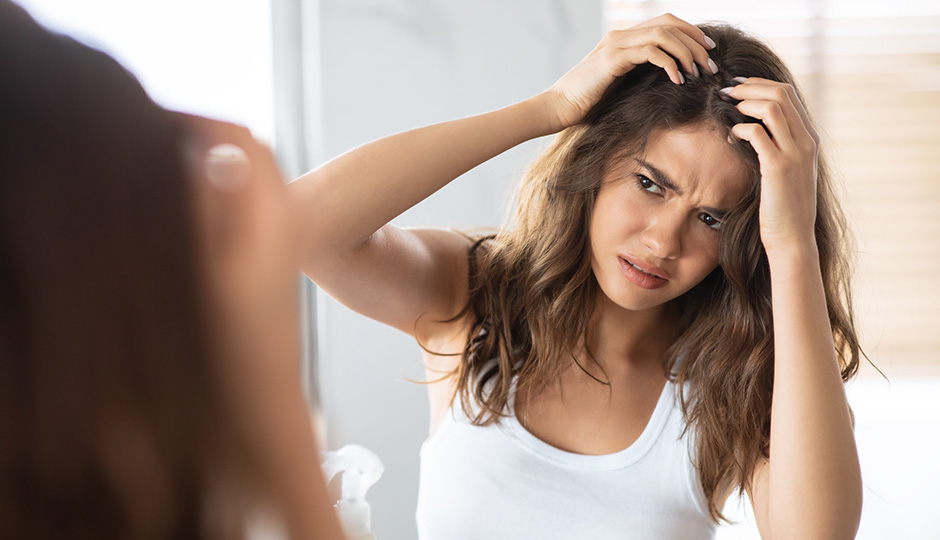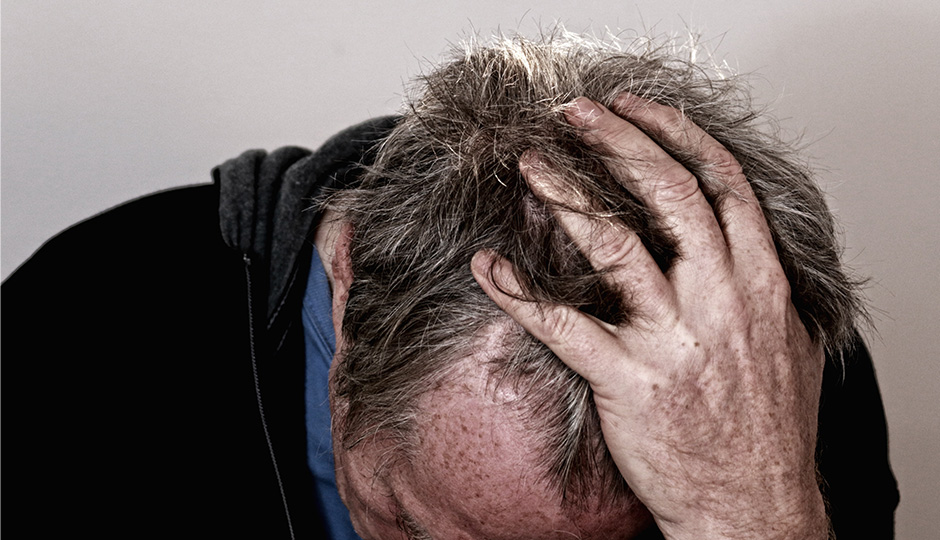If you are experiencing hair loss, worrying about your condition is normal. But when you see white flakes falling off your scalp and experience severe itching, your worry can quickly become a deep concern. Often, people ask if dandruff can lead to hair loss.
What is Dandruff?
Dandruff is a common skin condition that is a mild form of seborrheic dermatitis. The condition causes the skin on the scalp to develop yellowish-white dry flakes. While dandruff isn't contagious, it can be embarrassing and difficult to treat.
What Causes Dandruff?
You can develop dandruff for a variety of reasons. Some of the most common causes include:
Dry Scalp
If your skin is dehydrated, it's difficult for your scalp to stay moisturized. Dehydration causes your scalp's natural sebum production to decline, causing your scalp to dry and leaving it unprotected. Dandruff is more common in the winter months because your skin tends to lose moisture and becomes dry in cold seasons.
Haircare Routines
Keeping your scalp and hair clean is vital to maintaining a full, healthy head of hair. Washing your hair is essential because failing to do so can lead to an excess buildup of oil, dead skin cells, and dirt, leading to itching, flaking, and dandruff.
Allergic Reactions
It's not uncommon for someone to have an allergic reaction and experience skin irritation from a specific product or substance. An allergic reaction can cause irritation, redness, inflammation, and itchiness, leading to dandruff.
Underlying Medical Conditions
Sometimes, even if your scalp is healthy and moisturized, you can develop dandruff. Underlying medical conditions such as seborrheic dermatitis, eczema, or psoriasis can sometimes cause an itchy scalp and dry flakes.
Does Dandruff Cause Hair Loss?
While dandruff does not directly cause hair loss, it can be a contributing factor. Often, dandruff causes severe itchiness, causing you to scratch your head vigorously. The inflammation and constant itching associated with dandruff can damage your hair follicles, leading to thinning hair and hair loss. If you are already experiencing hair loss, dandruff can worsen your condition.
Tips to Prevent Dandruff
You can take a few preventive measures to help prevent dandruff from occurring.
- Maintain the Health of Your Scalp - Keep your scalp well-moisturized, nourished, and clean. Avoid tight hairstyles, which can tug at the hair's root and damage the follicles. Use a soft brush or detangle and avoid hair products that contain harsh chemicals that can irritate your scalp. A hot oil massage with tea tree, rosemary, or coconut oil, which have antifungal properties, can help keep your scalp moisturized and prevent itchiness and flakiness.
- Change Your Diet - Minor changes to your diet and nutritional intake can dramatically affect scalp health. Eating a well-balanced diet that contains adequate amounts of essential vitamins and minerals is vital for overall health and the health of your scalp.
- Choose Haircare Products Carefully - Read the labels and choose your haircare products carefully. Look for products specially formulated to treat dandruff, and stay away from products that contain coal tar and sulfates, as they can increase your scalp's sensitivity.
Eliminate Dandruff and Protect Yourself From Hair Loss
Dandruff is a common scalp condition that can usually be managed with proper scalp care and nutrition. While it might not directly cause hair loss, the associated inflammation and itching can trigger or accelerate thinning hair and hair loss.
Maintaining a healthy scalp to eliminate dandruff and stop hair loss can be challenging, but the experts at LH Hair can help. We offer clients a full line of natural trichological solutions formulated to heal your scalp and stimulate new hair growth. To learn more about the connection between dandruff and hair loss and how you can improve the health of your scalp, contact us today and schedule your FREE initial consultation.



